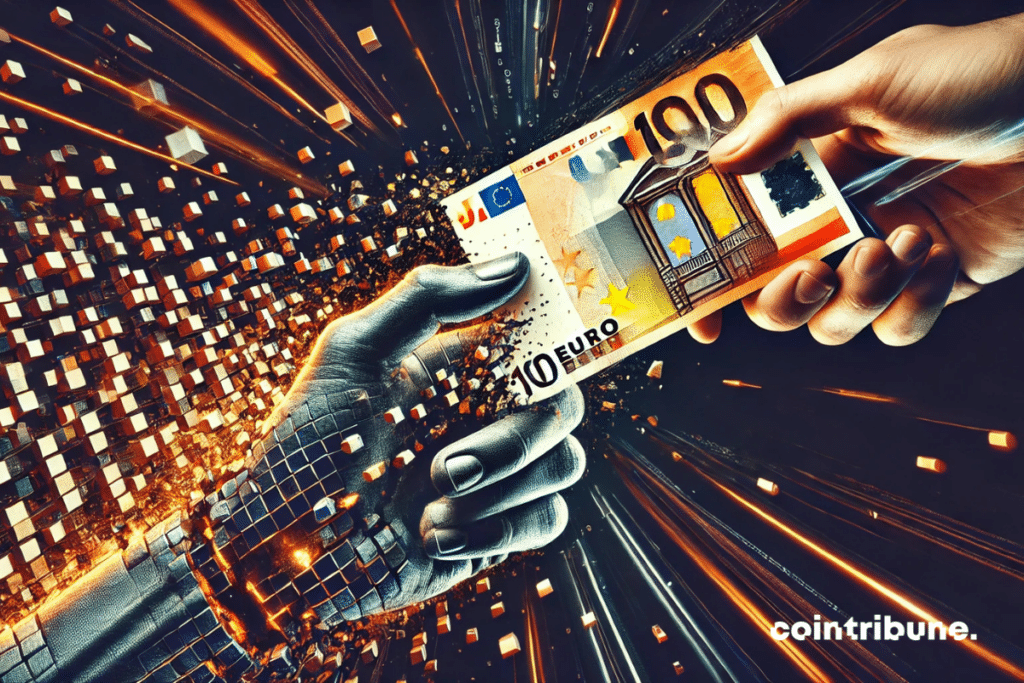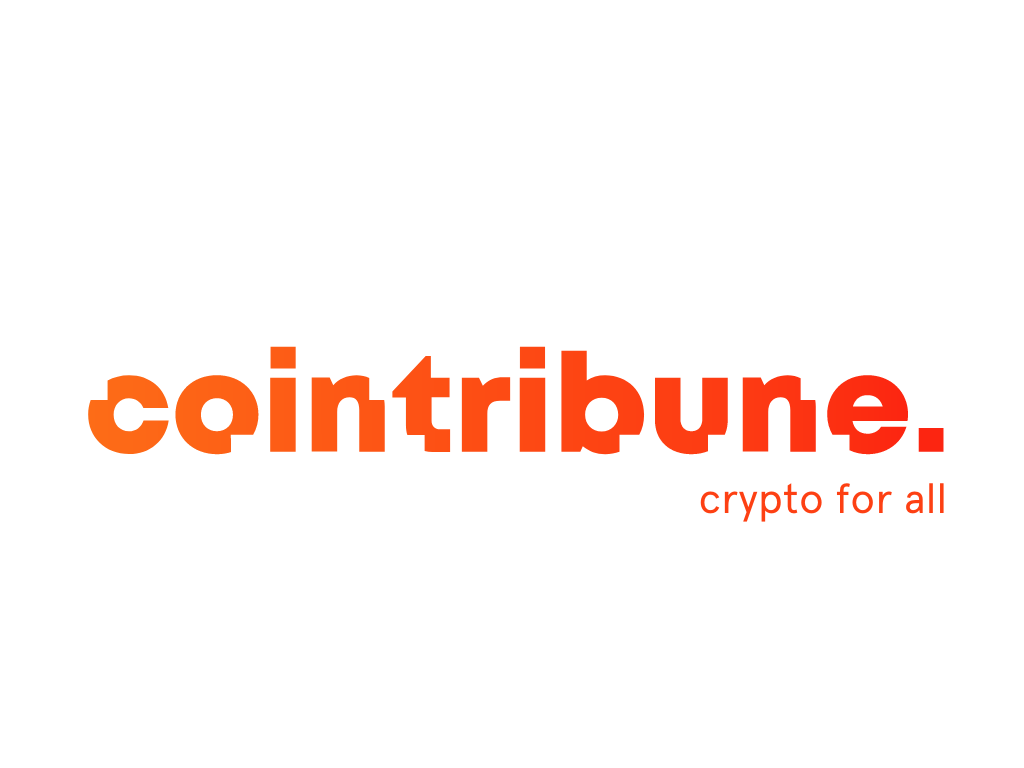Bitcoin And The End Of Cash
0
0
Central bank digital currencies would nullify any privacy, yet few seem to worry about it. Fortunately, there will always be bitcoin.

Cash is Losing Ground
Christine Lagarde wants her digital euro, this new form of currency also known as CBDC (Central Bank Digital Currency).
The Chief Economist of the European Central Bank Philip Lane believes that Europe needs it to mitigate the growing risks associated with foreign stablecoins and reduce dependence on American payment companies like Visa, Mastercard, ApplePay, and Google Pay.
Another justification often put forward by the ECB president: the decline of cash. Cash payments are declining on the old continent. Half of transactions (52%) are still made in cash, but it was 59% two years ago.
A ECB survey shows, however, that 62% of Europeans think it is important for merchants to accept cash. Half of them even consider it “very important” that this option is available.
In other words, cash has bright days ahead. Yet, the ECB is adamant about a digital euro. For some, this stubbornness betrays a desire to end cash, especially since the CBDC has already failed wherever it has been introduced (Nigeria, China).
“Conspiracy theories” assures a journalist from BFM TV: “The misinformation surrounding the supposed end of cash has become a conspiratorial leitmotif since Covid, but the ECB emphasizes that the digital euro would complement cash, not replace it.”
We are reassured…
One Euro to Control Them All
According to the ECB survey, Finns and Dutch use cash less than 30% of the time. In contrast, it’s more than 60% in Austria or Italy and more than 54% in Germany and Spain. Cash remains popular in the former fascist dictatorships.
Those with short memories should remember that Ukrainians can no longer use their payment cards abroad. This dictatorial measure aims to keep a reservoir of men for the front.
How to flee a war-torn country without access to your money? How to escape conscription if your credit card reveals the time and place where you do your shopping? Impossible without cash. Much easier with bitcoins.
It takes courage to talk about conspiracy theories when we know that Zelenski’s regime kidnaps Ukrainians daily in the streets to make them cannon fodder for the Western bloc.
States and private payment companies should never have absolute control over payment methods. The temptation is too strong to use it for dark purposes. In case of war, but not only.
Central banks could implement negative rates. Savings would be chopped by a certain percentage each year instead of earning interest. To finance the war effort, for example…
Cash is a bulwark against this dystopian scenario. It is better to have bills that earn nothing than to lose money due to negative interest rates. That said, let’s point out in passing that cash represents only 5% of the total money supply. The real escape route would actually be bitcoin.
In summary, total control of money creates the temptation to ration spending during inflation or war, and to encourage spending during deflation.
Tell Me What You Spend and I’ll Tell You Who You Are
We are all profiled based on our consumption habits. Only cash guarantees the choice to conceal our expenses. The end of anonymity would be very dangerous, even in a democracy, and the Cambridge Analytica scandal is the ultimate demonstration of this.
This firm used Facebook data to profile tens of millions of users to identify those likely to be swayed to vote for a particular presidential candidate (Donald Trump, in this case).
All in all, Cambridge Analytica even ranked Americans according to 32 personality types based on several thousand pieces of information. For instance, there is a strong possibility that a man who liked (or bought…) a certain brand of cosmetics is homosexual, etc.
Cross-referencing dozens, hundreds, or even thousands of likes allows for surgical targeting of potential voters. To do this, Cambridge Analytica created tens of thousands of tailor-made advertisements that influenced the votes of over 80 million Americans.
Privacy is essential to any democracy worthy of the name. Just because one does nothing illegal does not mean that our data cannot be used against us. The government does not have the right to know how we live our lives, which is very easy to detect via social media or purchase history…
It also shouldn’t influence our philosophy of life. However, this is precisely the goal when countries seek a social credit system worthy of the Black Mirror series. China has notably looked into this subject and let’s bet that more than one European technocrat is also considering it.
Panopticon vs Bitcoin
Ending privacy is the best way to encourage people to change their behaviors. Someone who wanted to modify morals, culture, or philosophy of life wouldn’t approach it any other way. Christine Lagarde summarized it well in a speech in 2018:
“Imagine that people who buy beer and frozen pizzas generally have a higher default rate than those who buy organic broccoli and spring water. What can you do if you want beer and pizza, but you don’t want your credit score to drop? You can pay with cash. [Will the inability to pay in cash and the fact that your purchase history is scrutinized] push you towards the broccoli aisle? Could central banks come to the rescue by offering a completely anonymous digital currency? Certainly not. It would be a boon for criminals.”
Christine Lagarde, 2018, speech Winds of Change: The Case for New Digital Currency
Proponents of the CBDC often claim it would lead to a decrease in criminal and illicit activities. Unlikely. Drug and arms dealers will always find solutions.
Moreover, as Jared Dillian reminds us, from a philosophical standpoint, virtue is not possible without freedom of choice. Not being able to choose to “live poorly” does not make one virtuous. A society where no one has the freedom to step out of the mold is much more horrible than a society where some can choose to live in inequality.
Whatever the real intentions of the ECB, bitcoin is, to quote Christine Lagarde, a “way out” from the Orwellian scenario of a cashless society.
In this regard, note that the Lightning network allows for instant and almost free bitcoin payments. To this end, download the Phoenix app from the French developer.
Don’t miss our article on the Lightning network: This network that changes everything for Bitcoin.
0
0
 Manage all your crypto, NFT and DeFi from one place
Manage all your crypto, NFT and DeFi from one placeSecurely connect the portfolio you’re using to start.








